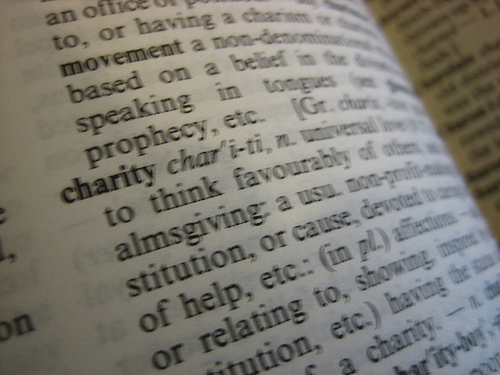
As an offshoot of some recent work, I’ve been thinking a lot about intermediaries and user agents, who act on behalf of individuals to help them achieve their goals. Whether they are web browsers and related plugins that remember stuff for you or help you stay focused, or energy switching platforms like Cheap Energy Club who help you get the best deal on energy, these intermediaries provide value by helping you to follow through on your best intentions. I don’t trust myself to keep on top of the best mobile phone tariff for me, so I delegate that to a third party. I know that when I’m tired or bored, I’ll get distracted by Youtube, so I use a browser plugin to remove that option when I’m supposed to be working.
Intermediaries, user agents, personal information managers, impartial advisers – however you refer to them, they help us by overcoming our in-built tendencies to forget, to make bad choices in the heat of the moment, or to disregard important information. Behavioural economics has revealed us to be fundamentally less rational in our everyday behaviour than we think. Research into the very real concept of willpower shows that all the little everyday decisions we have to take exact a toll on our mental energy, meaning that even with the best intentions, it’s very unlikely that we consistently make the best choices day-to-day. The modern world is incredibly complex, so anything that helps us make more informed decisions, and actually act consistently in line with those decisions on a daily basis, has got to be a good thing.
Most of these intermediary systems operate on our interactions with the market and public services, but few look at our interactions with ‘third sector’ organisations. This is an enormous opportunity. Nowhere else is the gap between good intentions and actual behaviour more apparent than in the area of charitable giving. If asked in a reflective state of mind, most people would agree that they could and should do more to make the world a better place. Most people would agree that expensive cups of coffee, new clothes, or a holiday are not as important as alleviating world hunger or curing malaria. Even if home comforts are deserved, we would probably like to cut down on them just a little bit, if doing so would significantly help the needy (ethicist Peter Singer suggests donating just 10% of your income to an effective charity).
But on a day-to-day basis, this perspective fades into the background. I want a coffee, I can easily afford to buy one, so why not? And anyway, how do you know the money you donate to charity is actually going to do anything? International aid is horribly complex, so how can an ordinary person with a busy life possibly work out what’s effective? High net worth individuals employ full time philanthropy consultants to do that for them. So even if we recognise on an abstract, rational level that we ought to do something, the burden of working out what to do, the hassle of remembering to do it, and the mental effort of resisting more immediate conflicting urges, are ultimately overwhelming. The result is inertia – doing nothing at all.
Many charities attempt to bypass this by catching our attention with adverts which tug at the heartstrings and present eye-catching statistics. As a result, until recently I went about giving to charity in a completely haphazard way – one-off donations to whoever managed to grab my attention at the right moment. But wouldn’t it be better if we could take our rational, considered ethical commitments and find ways to embed them in our lives, to make them easy to adhere to, reducing the mental and administrative burden? I’ve found several organisations that can help you work out how to give more effectively and stay committed to giving (see Giving What We Can). But there is even more scope for intermediaries to provide holistic systems to help you develop and achieve your ethical goals.
Precisely what form they take (browser plugins, online services, or real, human support?), and what we call them (Personal Charity Managers, Ethical Assistants, Philanthropic Nudges, Moral Software Agents), I won’t attempt to predict. They wouldn’t be a panacea; ethical intermediaries will never replace careful, considered moral deliberation, rigorous debate about right and wrong, and practising virtue in daily life. But as services that practically help us follow through on our carefully considered moral beliefs, and manage our charitable giving, they could be revolutionary.